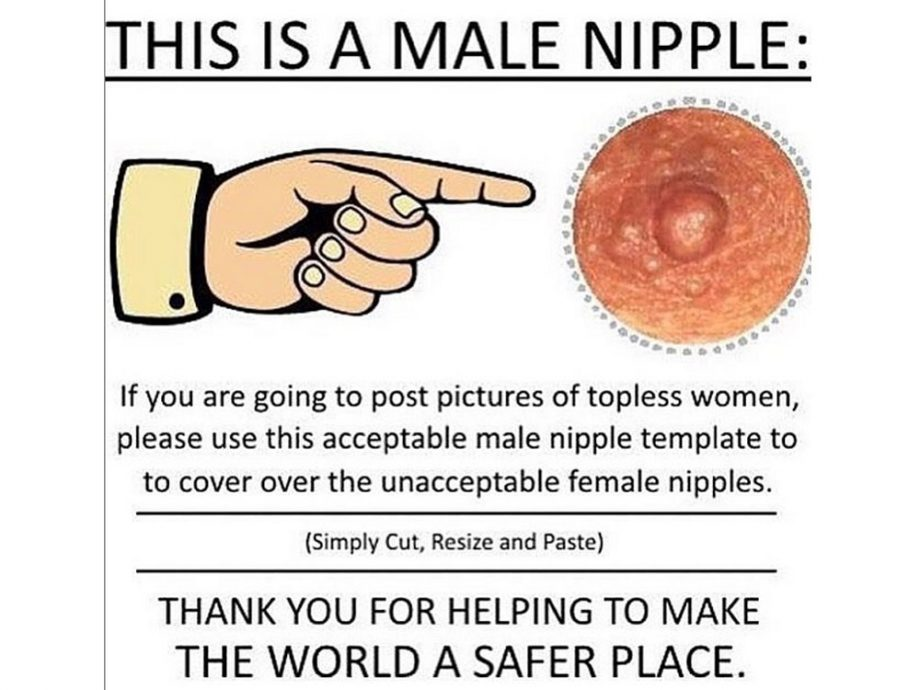Two Concepts of Liberty and Infinite Permutations of Moderating

tl;dr
- Social networking without moderating is impossible
- For-profit social networks might do their best at moderating, but their best is not good enough
- If your particular community considers sacrosanct the freedom to put anything in front of anyone else, then where is the viewer’s freedom?
- Moderating is like conversation with positive and negative feedback, and the design of the facilities for moderating is itself a form of moderating
- We need to figure out together how best to accommodate multiple contexts and naturally varying expectations; how much variation can one 'world' satisfy, and when might a new 'world' be necessitated?
Our first blog post on the myths and challenges of social network moderating and the direction we're heading in for decentralized social networking elicited some agreeable feedback but also this response:
“I don't agree with your views about moderation. We're building blockchains for freedom.”>
Have you ever had that feeling where your communication simply fell flat despite your sincere best efforts?! 😞 Where your carefully constructed words didn’t appear to make the slightest dint?! Sure you have, you’re human too.
Similarly, we've all conveyed abrupt disagreement. This is the natural to-and-fro of conversation, and it demands mutual respect and enthusiasm for the potential benefits of mutual understanding.
How then should I respond to my responder? The response was private communication, so let’s call him Bob. I find myself asking ...
What exactly does Bob mean by “freedom”?
In the earlier post I write that AKASHA celebrates freedom of speech and freedom of attention equally. And I also noted our longing for freedom from the crèches of centralized social networks. But Bob is “building blockchains for freedom” and appears to consider this different from rather than aligned with our direction.
Can I find an explanation for this and reconcile perceived differences? 🤝
You and I and Bob and my AKASHA colleagues are social animals contemplating the design of social networking. The “I” and the “we” are unavoidably entangled. Isaiah Berlin can help us understand this entanglement in the context of freedom courtesy of the transcript from his 1958 lecture “Two Concepts of Liberty” — he used “liberty” and “freedom” to mean the same.
Let’s start where I think Bob finds himself.
Berlin describes negative liberty as “freedom from”. When we talk about freedom of movement, freedom of religion, and freedom of speech for example, we’re talking about freedom from interference by others. Typically, a person might accept local and national government so long as it doesn’t go too far. The potential for such overreach, for interference, is constrained by establishing such negative liberties as social norms and sometimes as rights.
We want freedom from moderating overreach, and our focus then turns to describing what might constitute overreach.
Universal, non-contextual moderation by employees of a distant for-profit corporate has proved itself able if not perfect in some respects (e.g. keeping deeply abhorrent pornography out of the public domain) but also susceptible to overreach. It will always be considered to be overreaching and under-reaching at the same time because it cannot share all the contexts of those using its social networking service. In short, a social network governed by a central authority is unsustainable, assuming that is the existence of decentralized alternatives that have cracked their own non-trivial sustainability challenges.
The question of moderating overreach is front and center in many countries in 2021, exemplified by the Trump ban.
This post is not about to ‘get political’ other than to point to the Trump ban in the context of contexts. In the context of Twitter, a ban is a ban is a ban. But Twitter does not stand alone. It is a social system within a social system, and in this context it’s clearly within whatever may be described as ‘the US system’. However it’s described we can say categorically that ‘the US system’ is distinct from, for example, what may be described as ‘the EU system’. More emphasis may be placed on private corporate action in moderating US society than in European society (see Ben Thompson's Trump and Twitter), and maybe that’s why Angela Merkel considered it “problematic” through her European lens — after all, Twitter is popular amongst European citizens too.
Maybe. My goal here does not require me to argue any of this one way or another, but just to point to the certainties that society / human community is complex and contexts matter.
We should have seen this coming. The #FreeTheNipple campaign (2013+) was revealing.
Some people consider photographs featuring male nipples acceptable but those featuring female nipples unacceptable. Others consider both acceptable. Some people want their social networking to be free from female nipples and some people want to be free to post images with female nipples.

Freedom from ... (negative liberty).
And freedom to … (positive liberty).
“The ‘positive’ sense of the word ‘liberty’ derives from the wish on the part of the individual to be his own master. I wish my life and decisions to depend on myself … not acted upon by external nature or by other men as if I were a thing, or an animal, or a slave incapable of playing a human role, that is, of conceiving goals and policies of my own and realizing them.”
AKASHA has no right to insist you should be anti- or pro-nipple. (Some sentences surprise you after you've written them.) In recognising different-courses-for-different-horses, we can focus instead on moderating approaches that allow different communities, and sub-communities, in different contexts to moderate differently.
Could Bob work towards freedom from moderating?
This is the question.
If this is Bob's goal, either his goal is impossible or he's working to an entirely different definition of moderating.
Our first post adopts the definition of moderating as a subset of governance that structures participation in a community to facilitate cooperation and prevent abuse. A place or space lacking cooperation and riddled with abuse might be called many things — cesspool comes to mind, or perhaps antisocial network — but never a social network.
Let's look at it another way. If your particular community considers sacrosanct the freedom to put anything in front of anyone else, then where is the viewer’s freedom? If the viewer is to have some freedom from such content, then the social actions necessarily involved constitute moderating. No matter how freedom-loving you may be, this balance needs your attention. In fact all the more for your love of freedom. Structure is necessitated to reconcile and enact participants' expectations for their freedoms, but it’s even more fundamental than that.
Moderating is conversation. 💬 Social networking without moderating is as impossible as social networking without conversation.
As conversation, moderating entails continuous information exchange with some social maintenance or goal in mind. And just as language evolves for communication efficacy and efficiency, so does moderating design, and so too then the user interface. There are as many permutations of moderating in the context of social networking as permutations of conversation (and similarly, some might make more sense than others).
The like. The flag. The claps. The thumbs down. The triage. The plus one. The reputational scoring. The conversational intervention. The label. The animated gif conveying your support for where something is going. One's reach / influence. Any facility to reflect on the contextual suitability of anything and everything. The facilities to revise the facilities. Etc. These all contribute to your communication agency and your freedom of participation, and your freedom to help define the evolving structures of social participation, and your freedom to regard a balance of freedoms differently to others' regards for the requisite balance. And your collective freedom to pursue and maintain that collective balance together as best you might.
Despite having claimed this post wasn’t about to ‘get political’, we’ve just concluded with its definition. Moderating is a subset of governance, and politics is the activities of governance.
To quote the title of a great book, two is company and three is complexity. There's no pretending a social network isn't complex, and such complexity requires moderating feedback loops.
AKASHA works to enable your community’s politics and, in the long-run, have the social system spanning these social systems divine the acceptable from the unacceptable courtesy of participants' perception of their value and the rule of two feet. It's meta. Nothing to do with us. Far from censorship Bob, it’s your collective's freedom. 🙌
🙌🏽 How to get involved
We need a plurality of minds and ideas to work out how decentralized social networking should evolve. Suppose you are interested in contributing your superpowers to a community of pioneers focusing on a complex but essential challenge for the decentralized web. In that case, the AKASHA Foundation’s community is your place to be!
🗣️ Join The AKASHA Foundation’s Discourse
Discuss, join working groups and read up about the latest conversations, design, and development efforts related to designing decentralized social networking on our forum.
🚀 Join Ethereum World!
Join us on our ride into the decentralized future of online social networks on akasha.ethereum.world.
